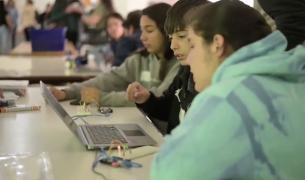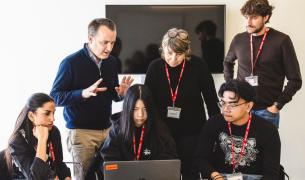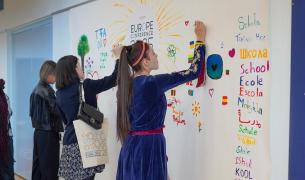Bringing Local Leadership and Knowledge Sharing to the Global Education Discussion During UNGA 2018
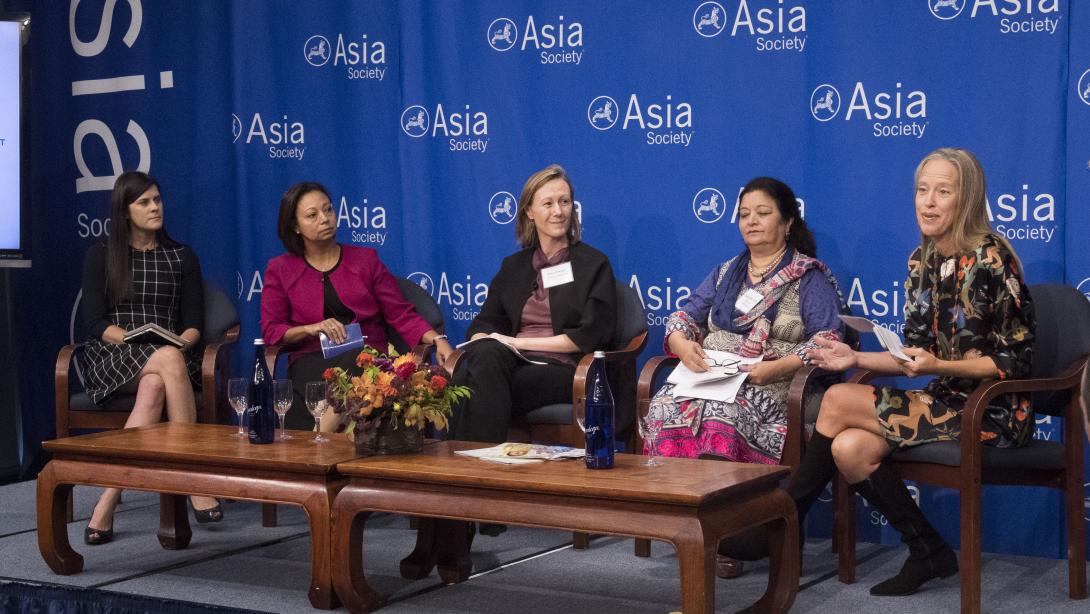
During the United Nations General Assembly (UNGA) in New York last week, Teach For All participated in several events focused on advancing progress towards achieving Sustainable Development Goal 4, to “ensure inclusive and equitable quality education and promote lifelong learning opportunities for all.” The 2018 UNGA events saw numerous world leaders committing to finding solutions, from financing education, to providing education in emergencies, to advancing girls’ education.
With the championship of the Education Commission, and along with the Center for Global Education at Asia Society, Results for Development, The Boston Consulting Group, and World Innovation Summit for Education (WISE), Teach For All co-authored and launched a new report on improving cross-border learning in education on September 24. The report, Investing in Knowledge Sharing to Advance SDG 4, builds on The Learning Generation report recommendation to develop a “global education ecosystem” and presents a fresh approach to understanding the value of exchanging ideas across the education sector, and proposes a set of key criteria to achieve effective knowledge sharing, derived from case studies and interviews, that funders and practitioners can use to make more effective investments in knowledge sharing.
The launch event hosted by Asia Society in New York was opened by Josette Sheeran, President and CEO of Asia Society, and Liesbet Steer, Director of the Education Commission. Teach For All CEO and Co-founder Wendy Kopp moderated a panel discussion featuring Omidyar Network Investment Partner, Eliza Erikson; Global Partnership for Education Board Member, Randa Grob-Zakhary; Education Commissioner, Baela Raza Jamil; and the BHP Foundation’s Program Director, Education Equity (Global) and North America, Brodie Vansleve.
“We all have to do our part if we want to advance this vision,” Wendy noted, as she asked panelists to share specific ideas about what can be done right now to advance the knowledge sharing infrastructure necessary to achieve SDG 4. Lane McBride, Partner & Managing Director at BCG, further outlined that effective knowledge sharing relies on the integration of three key components: significant global public goods, catalytic capacity development, and purposeful networks, and that more and better investment is needed in these key areas. Education Commissioner, Amel Karboul, closed the program by reiterating that the work does not end here, and inviting the audience to think about how they can help maintain the momentum around the idea of a global education ecosystem and use it as a key model for knowledge sharing in their own funding and programming.
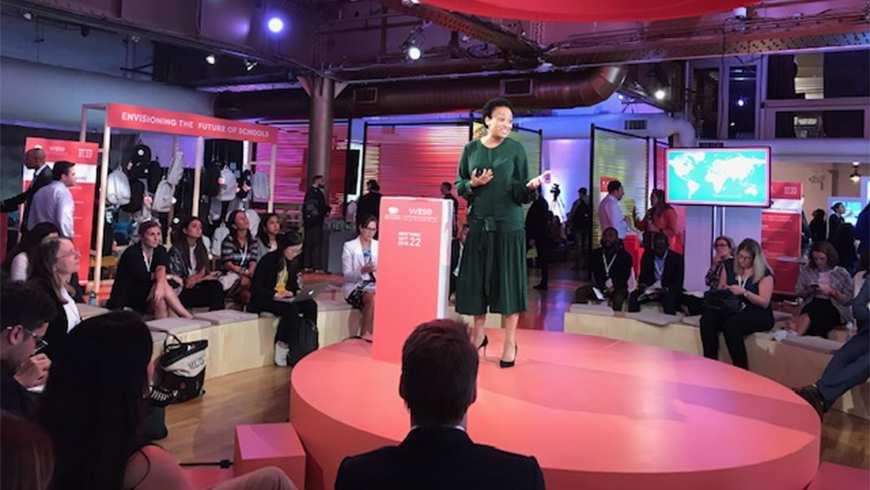
Representatives of Teach For All’s global organization contributed to the discussion on September 22 at @email, which focused on “Learning Revolutions: Creating Educational Environments for Empowerment and Inclusion.” Teach For All’s Global Special Projects Lead Diane Robinson presented a WISE Talk on her personal journey as a young student in rural Jamaica and how her experience as a Teach For America teacher in Compton, California inspired her to work towards systems-level change in her current role. Diane shared the story of Yinusa, a 14-year-old student in Nigeria who blossomed under the tutelage of his Teach For Nigeria teacher, and spoke about the work Teach For India and its alumni are doing in partnership with others in the city of Pune to drive community-level change. She also called on all in attendance to engage in efforts like these because, “we need thousands more people who are a part of this movement toward personal transformation for all of our students growing up in low-income communities around the world.”
Sarah King, Deputy Director of Teach For All’s Global Learning Lab, presented the interactive session “Insights From Transformational Classrooms Around the World,” which invited participants to draw lessons and inspiration from exceptional classrooms in under-resourced communities across the globe via virtual visits. During the session, participants worked together to identify patterns in student outcomes and teacher actions and mindsets among the classrooms, and provided them with knowledge and tools that they can adapt to their work in their own contexts.
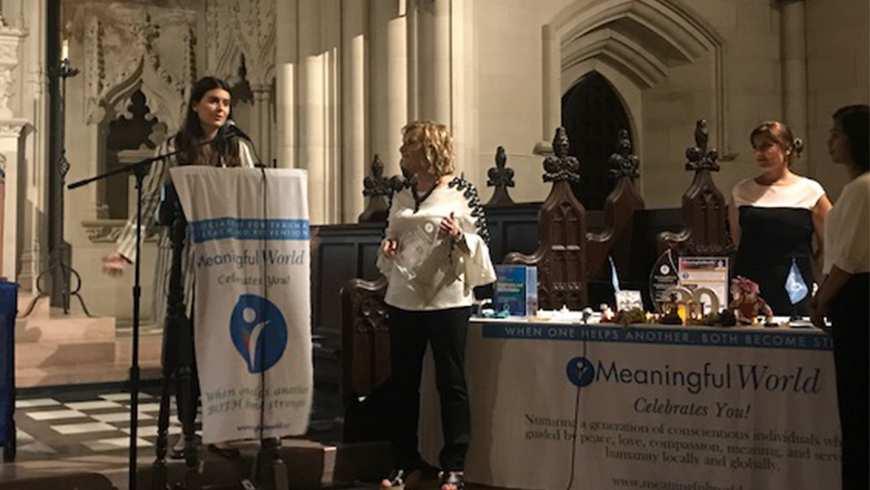
Larisa Hovannisian, the Founder and CEO of Teach For Armenia, spoke on September 21 at the Solutions Exchange Summit, which convened global communities of social innovators for an exchange of resources, learning, and partnerships to create effective solutions for the world’s most pressing problems. “We center our core purpose around an ambitious and contextually relevant student vision,” Larisa shared during the “Work of the Future & Teachers and Educators” panel. “From this vision comes everything — our organizational goals, priorities, and strategy. We didn’t create this vision from within the walls of our office. Instead, we engaged our Fellows, [other] teachers, students, parents, and community members from 85 of our partner communities. We know that the only way to facilitate real change in public education is by empowering the voices of the communities we serve, and ensuring that they are at the forefront of creating this change.”
Larisa was also honored by Meaningful World with a Peace Award on September 21. She was nominated for the award due to her work in conflict areas in Armenia and Artsakh, a republic in Azerbaijan, two territorially disputed areas with an unfortunate history of conflict and border disputes. One of Teach For Armenia’s goals was to bring the program to Artsakh, where the level of education is extremely low and communities need motivated and gifted teachers.
